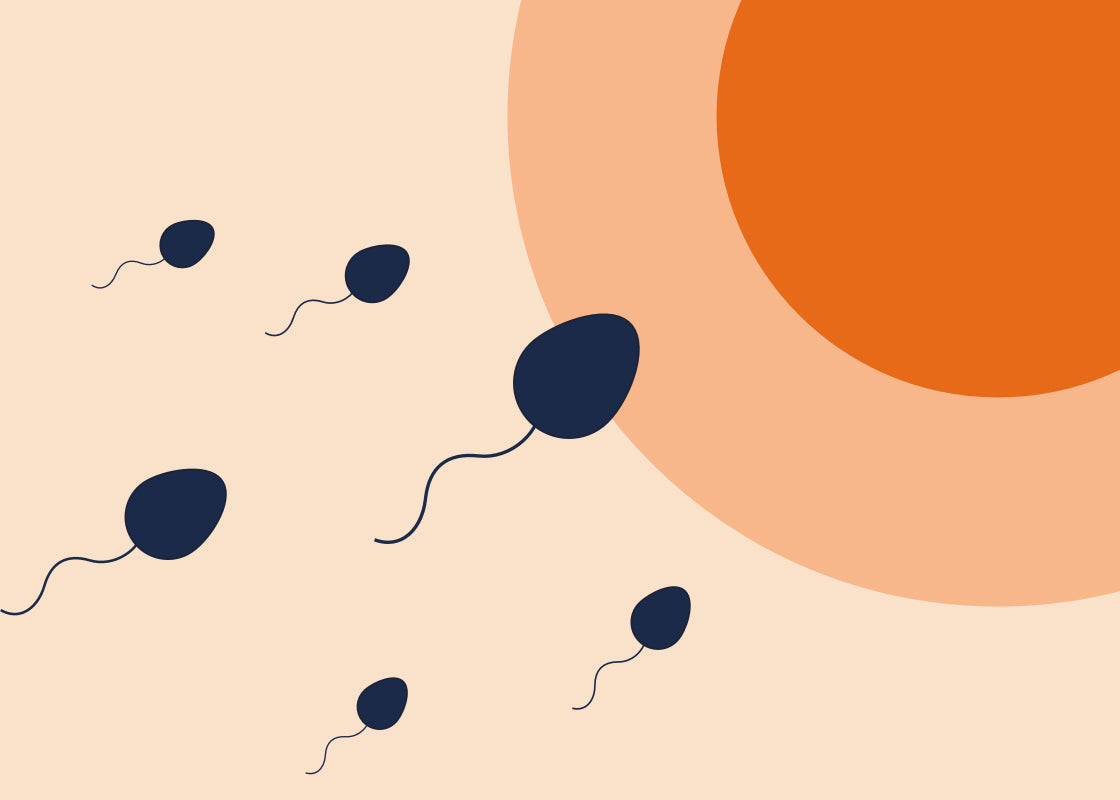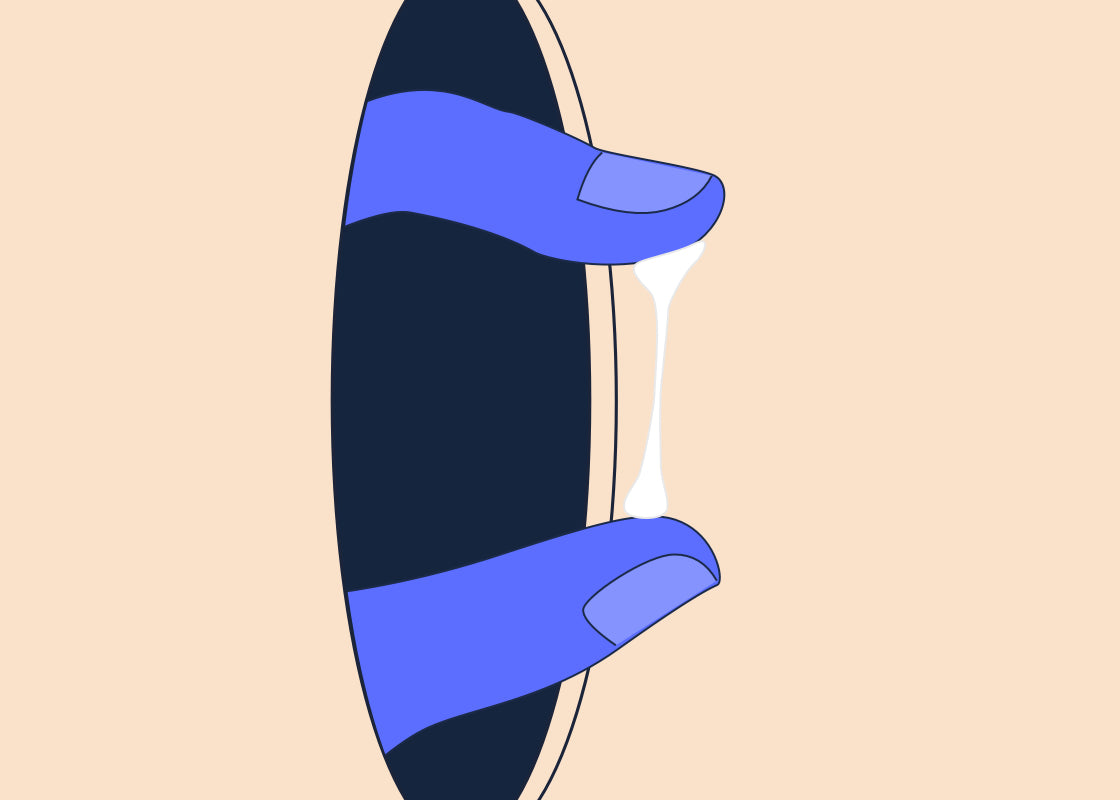Congratulations! A new addition to the family is on the way!
Pregnancy is a breathtaking process. But of course, there's nothing quite like the moment you get to meet and cradle your baby in your arms for the very first time. So it's no surprise that you're eager to know when you're due—not to mention that knowing your pregnancy’s due date helps you to better plan and prepare.
Questions like "When is my due date?" and "How far along am I?" are some of the most common among expectant mothers. And if that's something you want answers to today, you'd definitely want to stick around.
We'll walk you through the ins and outs of calculating your pregnancy due date. On top of that, this guide will also cover how accurate these estimated due dates are and the different factors that could impact the accuracy of this estimation.
What Is A Due Date?
The due date is the approximate date when you are expected to go into labour. In other words, this is the predicted date of when your baby will be due.
This due date is also known as the estimated date of delivery (EDD)—because babies don't always stick to the schedule given (much like some adults!).
Hence, you aren't guaranteed to go into labour exactly on this date. But it will give you an idea of when your baby is due to allow for better preparation.
If you've recently received a positive result from a pregnancy test, you can use a due date calculator to estimate your due date. Your doctor may also be able to give you an idea of when your baby is expected to arrive based on ultrasound scans.
When Is My Due Date?
Calculating your due date isn't rocket science, but getting an accurate result can be very tricky.
There are various ways to estimate your due date.
Using the first day of your last period
This method is most widely used by healthcare professionals.
On average, a pregnancy lasts 280 days (or 40 weeks) from the first day of your last menstrual period. So, to perform this calculation, you should add 40 weeks to the first day of your last menses.
Understandably, it can be a little confusing handling this calculation. And it isn't your fault if you've got pregnancy brain fog. Don't worry. Let's go through it step by step.
Let's say the first day of your last menstrual period lands on 1 July 2021.
- Subtract three months from that date. Your result?—1 April 2021.
- Add 7 days to the new date. You'll get 8 April 2021.
- Add a year if necessary. The final estimated due date is 8 April 2022 [1].
Keep in mind that this is only an estimation, but it does give you an idea of when to start prepping.
Using your conception date
Using the date of conception isn't as popular a method for due date calculation, simply because many women don't actually know when they conceived.
Most pregnancies last 38 weeks (266 days) from conception on average. So you'd have to add 38 weeks to your date of conception to get your due date.
Even though the first day of your last menstrual period is considered the first day of your pregnancy, you didn't actually conceive until 2 weeks later. This explains the 2-week gap between the previous method we used and this one.
If you have been using an ovulation tracker or monitoring for ovulation symptoms, you may be able to estimate your date of conception. Ovulation tracking devices like the inne minilab will give you valuable insights into your unique cycle and help you predict and track your ovulation date and fertile period. This could give you some clues as to when you conceived.
However, even if you know exactly when you had sexual intercourse during your fertile period, finding your exact conception date can still be very tricky.
The thing is, the sperm is actually quite a survivor! Sperm can live up to 5 days in a woman's body. On top of that, the egg can survive up to 24 hours after it is released from the ovary. Hence, you may not have conceived on the day you had intercourse itself.
In fact, it is very possible to conceive several days after that.
Due to all these reasons, determining your estimated delivery date using your date of conception isn't the most practical method.
Using your IVF transfer date
If you've opted for the in-vitro fertilisation (IVF) procedure, you will need to know which day the eggs were transferred into your uterus.
For a Day-3 embryo transfer, add 263 days to your transfer date to get your estimated due date. For a Day-5 embryo transfer, add 261 days to your transfer date instead.
Going for an ultrasound scan
It can be difficult to recall when your last period was, and you might not have a clue when you conceived. In that case, your doctor can estimate your delivery date using an ultrasound scan.
In fact, an ultrasound scan in the first half of your pregnancy is more accurate compared to predicting your due date based on your last menstrual period [2].
Using ultrasound dating is also a practical way to estimate your due date if you have irregular menstrual cycles.
The ultrasound scan enables your doctor to see what is going on inside your womb and gauge the size of your baby, which can be useful in determining your unborn baby's age and your estimated due date.
How Accurate Is This Due Date Prediction?
Your due date is purely an estimation. And more often than not, your baby has plans of their own.
Based on research studies, the duration of pregnancy can vary by up to 37 days from woman to woman, excluding pregnancies with complications or preterm births [3]. That's a huge gap! This is why it's tricky to accurately predict your due date, even with ultrasounds or pregnancy due date calculators. In fact, you may go into labour two weeks before or after your given due date. Very few women actually give birth right on their due date.
Even before they were born, babies already had minds of their own! Hence, it's best to prepare well before your given due date, just in case your baby decides to make an entrance earlier than expected.
Why Did My Doctor Change My Due Date?
Throughout your pregnancy, you will be going for doctor checkups and ultrasounds to check the development and health of your baby.
An ultrasound scan during early pregnancy can help your doctor estimate your due date. Your doctor can do so by measuring the crown-rump length, which is the length of your fetus from one end to the other. This gives your doctor an idea of how old your baby is and when you could be going into labour [4].
But this given due date may actually be very different from the one calculated based on your last menstrual period. Essentially, the ultrasound date is more accurate compared to calculations using your last menstrual period.
There are several reasons why your due date may change after performing this ultrasound:
- You have irregular cycles. Hence, it is hard to determine when you ovulated or conceived.
- You are unsure when you had your last menstrual period, and the date you used in the calculation may not be very accurate.
- Your fetus happens to be growing faster or slower than average. You can speak to your doctor if you have any concerns about this.
Ultrasounds in early pregnancy are much more accurate in determining the baby's age and your due date compared to those performed in the later half of pregnancy. These late-stage ultrasounds are still conducted to assess the growth and health of your baby, rather than to estimate your due date.
When Did I Conceive Based On My Due Date?
To do this, you'll perform the calculation in reverse. The due date and conception date are 266 days apart. So, once you have your estimated due date, subtract 266 days from that date to get your conception date. This is an estimation, but it gives you a rough guide for when you conceived.
How Far Along Am I Based On My Due Date?
The average pregnancy lasts around 40 weeks from the first day of the last menstrual period and 38 weeks from conception.
A pregnancy is typically divided into three trimesters, in which there are 13-14 weeks per trimester.
- First trimester: Week 1 to the end of week 12
- Second trimester: Week 13 to the end of week 26
- Third trimester: Week 27 to the end of pregnancy
You can more or less determine which trimester you're in based on your given due date. Your doctor will also be able to tell which stage of pregnancy you're in based on your ultrasound scan.
Final Takeaway: Determining Your Pregnancy Due Date
Whether you use due date calculators or get your doctor's advice based on ultrasound scans, your due date is purely an estimation. Your little one might arrive a little earlier or later than scheduled. But going for checkups as recommended by your doctor will keep you informed of your baby's growth and progress along the way.
In the meantime, sit tight and enjoy the process. Before you know it, you'll be a proud mama, snuggling up with your little bundle of joy!
References
1. Edwards KI, Itzhak P. Estimated Date of Delivery. In: StatPearls. Treasure Island (FL): StatPearls Publishing; October 30, 2021.
2. Mongelli M, Wilcox M, Gardosi J. Estimating the date of confinement: ultrasonographic biometry versus certain menstrual dates. Am J Obstet Gynecol. 1996;174(1 Pt 1):278-281. doi:10.1016/s0002-9378(96)70408-8
3. Jukic AM, Baird DD, Weinberg CR, McConnaughey DR, Wilcox AJ. Length of human pregnancy and contributors to its natural variation. Hum Reprod. 2013;28(10):2848-2855. doi:10.1093/humrep/det297
4. Taipale P, Hiilesmaa V. Predicting delivery date by ultrasound and last menstrual period in early gestation. Obstet Gynecol. 2001;97(2):189-194. doi:10.1016/s0029-7844(00)01131-5



